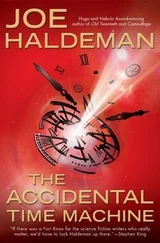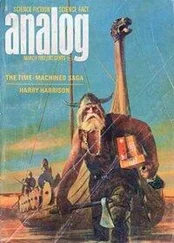THE TIME MACHINE
H. G. Wells

Copyright Copyright History of William Collins Life & Times Chapter 1 Chapter 2 Chapter 3 Chapter 4 Chapter 5 Chapter 6 Chapter 7 Chapter 8 Chapter 9 Chapter 10 Chapter 11 Chapter 12 Epilogue Classic Literature: Words and Phrases Footnote About the Publisher
William Collins
An imprint of HarperCollins Publishers
1 London Bridge Street,
London SE1 9GF
WilliamCollinsBooks.com
This eBook edition published by William Collins in 2017
Life & Times section © HarperCollins Publishers Ltd
Silvia Crompton asserts her moral right as author of the Life & Times section
Classic Literature: Words and Phrases adapted from
Collins English Dictionary
Cover by e-Digital Design
Cover illustration: © iStock
A catalogue record for this book is available from the British Library
All rights reserved under International and Pan-American Copyright Conventions. By payment of the required fees, you have been granted the non-exclusive, non-transferable right to access and read the text of this e-book on-screen. No part of this text may be reproduced, transmitted, down-loaded, decompiled, reverse engineered, or stored in or introduced into any information storage and retrieval system, in any form or by any means, whether electronic or mechanical, now known or hereinafter invented, without the express written permission of HarperCollins
Source ISBN: 9780008190033
Ebook Edition © January 2017 ISBN: 9780008190040
Version: 2016-12-20
Contents
Cover
Title Page THE TIME MACHINE H. G. Wells
Copyright Copyright Copyright History of William Collins Life & Times Chapter 1 Chapter 2 Chapter 3 Chapter 4 Chapter 5 Chapter 6 Chapter 7 Chapter 8 Chapter 9 Chapter 10 Chapter 11 Chapter 12 Epilogue Classic Literature: Words and Phrases Footnote About the Publisher William Collins An imprint of HarperCollins Publishers 1 London Bridge Street, London SE1 9GF WilliamCollinsBooks.com This eBook edition published by William Collins in 2017 Life & Times section © HarperCollins Publishers Ltd Silvia Crompton asserts her moral right as author of the Life & Times section Classic Literature: Words and Phrases adapted from Collins English Dictionary Cover by e-Digital Design Cover illustration: © iStock A catalogue record for this book is available from the British Library All rights reserved under International and Pan-American Copyright Conventions. By payment of the required fees, you have been granted the non-exclusive, non-transferable right to access and read the text of this e-book on-screen. No part of this text may be reproduced, transmitted, down-loaded, decompiled, reverse engineered, or stored in or introduced into any information storage and retrieval system, in any form or by any means, whether electronic or mechanical, now known or hereinafter invented, without the express written permission of HarperCollins Source ISBN: 9780008190033 Ebook Edition © January 2017 ISBN: 9780008190040 Version: 2016-12-20
History of William Collins
Life & Times
Chapter 1
Chapter 2
Chapter 3
Chapter 4
Chapter 5
Chapter 6
Chapter 7
Chapter 8
Chapter 9
Chapter 10
Chapter 11
Chapter 12
Epilogue
Classic Literature: Words and Phrases
Footnote
About the Publisher
History of William Collins
In 1819, millworker William Collins from Glasgow, Scotland, set up a company for printing and publishing pamphlets, sermons, hymn books, and prayer books. That company was Collins and was to mark the birth of HarperCollins Publishers as we know it today. The long tradition of Collins dictionary publishing can be traced back to the first dictionary William co-published in 1825, Greek and English Lexicon . Indeed, from 1840 onwards, he began to produce illustrated dictionaries and even obtained a licence to print and publish the Bible.
Soon after, William published the first Collins novel; however, it was the time of the Long Depression, where harvests were poor, prices were high, potato crops had failed, and violence was erupting in Europe. As a result, many factories across the country were forced to close down and William chose to retire in 1846, partly due to the hardships he was facing.
Aged 30, William’s son, William II, took over the business. A keen humanitarian with a warm heart and a generous spirit, William II was truly ‘Victorian’ in his outlook. He introduced new, up-to-date steam presses and published affordable editions of Shakespeare’s works and The Pilgrim’s Progress , making them available to the masses for the first time.
A new demand for educational books meant that success came with the publication of travel books, scientific books, encyclopedias, and dictionaries. This demand to be educated led to the later publication of atlases, and Collins also held the monopoly on scripture writing at the time.
In the 1860s Collins began to expand and diversify and the idea of ‘books for the millions’ was developed, although the phrase wasn’t coined until 1907. Affordable editions of classical literature were published, and in 1903 Collins introduced 10 titles in their Collins Handy Illustrated Pocket Novels. These proved so popular that a few years later this had increased to an output of 50 volumes, selling nearly half a million in their year of publication. In the same year, The Everyman’s Library was also instituted, with the idea of publishing an affordable library of the most important classical works, biographies, religious and philosophical treatments, plays, poems, travel, and adventure. This series eclipsed all competition at the time, and the introduction of paperback books in the 1950s helped to open that market and marked a high point in the industry.
HarperCollins is and has always been a champion of the classics, and the current Collins Classics series follows in this tradition – publishing classical literature that is affordable and available to all. Beautifully packaged, highly collectible, and intended to be reread and enjoyed at every opportunity.
Life & Times
About the Author
When we think of H. G. Wells, we think of ground-breaking science fiction, alien life forms, prophetic man-made contraptions and intergalactic warfare. His was a mind capable not only of imagining things that were literally out of this world, but also of prophesying how mankind’s flaws might turn these apocalyptic visions into everyday reality. Most remarkable of all, it was a mind that had grown from notably ordinary beginnings.
Herbert George Wells was born in 1866 in the London suburb of Bromley, where his father, a part-time professional cricketer, owned an unsuccessful sporting-goods shop. The family struggled financially, particularly after a leg injury terminated Wells’ father’s cricketing career, and at the age of fourteen Herbert had to leave school in order to earn his keep.
For four years, Wells moved from one fruitless apprenticeship to the next, before being offered the lifeline of a return to education. He had developed a love of literature during his youth, but now, thanks to a scholarship to the Royal College of Science in London, he was able to indulge his other passion: biology. One of his teachers there was the eminent anatomist T. H. Huxley, nicknamed ‘Darwin’s Bulldog’ for his outspoken support for Charles Darwin’s controversial theory of evolution. (Perhaps coincidentally, Huxley’s grandson Aldous would also go on to become an acclaimed science-fiction writer.)
Читать дальше













